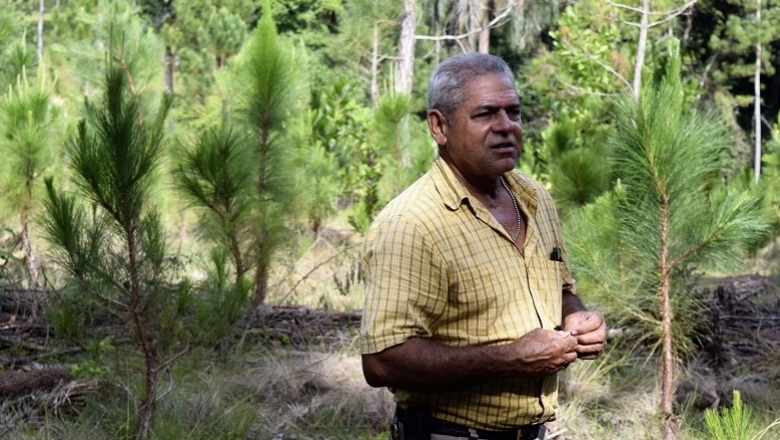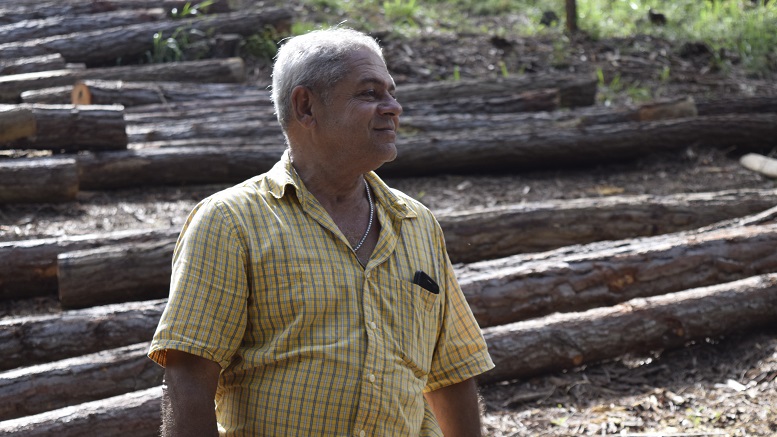STORY HIGHLIGHTS
- Forest producers in the Dominican Republic are implementing sustainable silvicultural practices that boost incomes for small and medium businesses.
- With support from the government and the World Bank’s Forest Carbon Partnership Facility, foresters are also focused on planting endemic and native species, fire prevention, pest management, and erosion control.
- Local efforts like these underpin a national-level initiative that focuses on decreasing emissions from deforestation and forest degradation and helping the country become more resilient to the impacts of climate change.
If the world is to confront the challenges of mitigating and adapting to climate change while meeting the demands of a rapidly-growing global population, it is vital that we find the balance between conserving and regenerating forest areas with economic growth for poverty reduction.
“Why is he planting mahogany and pine seedlings side by side?” Ramos remembers hearing from his neighbors. “They started calling my farm a sancocho farm,” he laughs, referring to a traditional soup in DR consisting of different meats and root vegetables.
Ramos knew exactly what he was doing. His sancocho planting style was in fact sustainable forest management in practice. It’s an approach that now yields Ramos up to 3.5 million pesos (about US$70,000) per year, and is also supporting DR’s national efforts to reduce emissions from deforestation and forest degradation (often referred to as REDD+).
It’s all in the right tree mix
Pine trees help to repel pests of the mahogany tree. And the mara trees Ramos planted throughout his farm are helping to reduce soil erosion and preserve aquifers in the area.
He cuts down trees when they reach maturity, and clears out smaller trees that are not thriving to allow for the stronger trees to reach their full potential. This thinning is done according to a predetermined schedule, so that his plantation is always growing to its maximum potential.
"Now, when other farmers come here, and they see the trucks loaded with my wood for sale, they understand how well a sustainable approach can work, and they leave convinced that sustainable forest management really is the best, long-term way to make money.”
As a founding member of Restauración’s Association of Sustainable Forest Development (ASODEFOREST), Ramos says he has seen the enthusiasm grow for this approach to forest management. The organization now brings together more than 200 forest producers in the area that practice sustainable silvicultural management, through the promotion of endemic and native forest species, environmental commitment, fire prevention, pest management, erosion control and natural regeneration of the forest.



